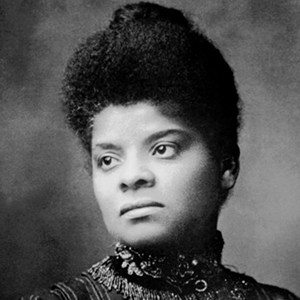Ida Wells was an African-American civil rights activist and journalist. She is most well-known for leading an anti-lynching campaign in the 1890s.
Early Life
Wells was born into slavery in Mississippi, but was freed six months later when President Abraham Lincoln issued the Emancipation Proclamation. At the age of 16, Wells’ parents died in a yellow fever outbreak. In an effort to keep her siblings together, she got a job at a local school. Wells later moved her family to Memphis to seek a better paying job and be closer to family.
Nashville Train Incident
In May 1884, Wells purchased a first-class train ticket to Nashville, but was forced by train staff to move to an African American car. Wells refused and was forcibly removed. She later sued the railroad and won a $500 settlement. However, the decision was later overturned by the Tennessee Supreme Court.
Wells wrote about her experience on the train in a local church newspaper. Outraged by the lack of justice, she began to pen weekly articles about race issues for The Living Way weekly newspaper using the pen name “Iola.” In 1889, Wells became a partner and editor of an anti-segregation publication, the Free Speech and Headlight. After gaining notoriety for her articles, which were highly critical of the condition of black schools, Wells was fired from her teaching job.
Fight Against Lynching, Segregation & Racism
Wells began to focus her writing on lynching after three of her friends were brutally killed. The African American men operated a grocery store that competed with a white-owned store. After defending the store from white vandals, the men were arrested. However, before they could stand trial, an angry mob stormed the jail and killed the three men.
Wells subsequently traveled around the South documenting lynching incidents and their alleged causes. In “Southern Horrors: Lynch Law in All Its Phases,” Wells argued that lynching was largely used as a means of social control rather than a valid form of punishment for crimes such as rape of a white woman, noting that most sexual encounters between white women and black men were consensual. In response to her articles, a white mob destroyed the office of her newspaper and warned Wells that she would be harmed if she ever returned to Memphis.
Undeterred, Wells continued to argue against segregation and embarked on a speaking tour of Europe to rally support. 1909, she helped found the National Association for the Advancement of Colored People.









